News
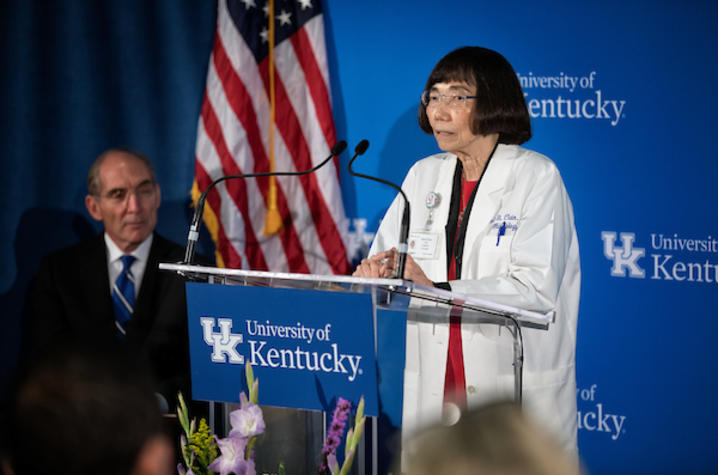
University of Kentucky Markey Cancer Center researcher Daret St. Clair, Ph.D., has been named the 2018 Lifetime Achievement Award Recipient from the Society for Redox Biology and Medicine (SfRBM). St. Clair received the award and gave a feature lecture at the SfRBM’s 25th Annual Conference in Chicago earlier this month.
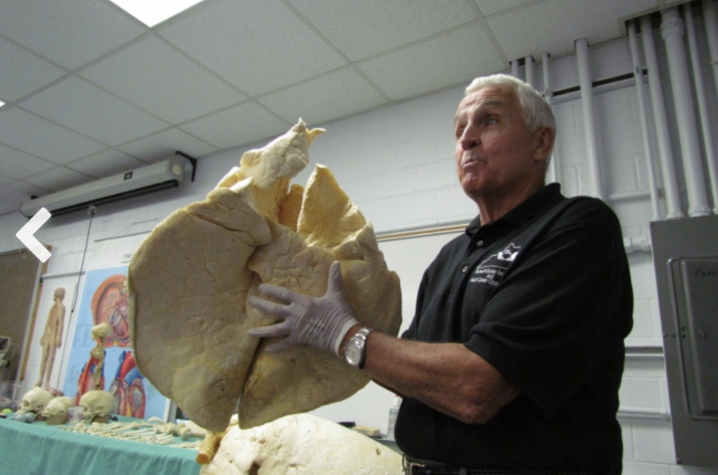
After successfully launching an oncology training program for Appalachian undergrads in 2016, the University of Kentucky Markey Cancer Center is expanding the program to include high school students. The Appalachian Career Training in Oncology (ACTION) Program – formerly known as CTOP – is funded through a nearly $2.3 million grant from the National Cancer Institute.
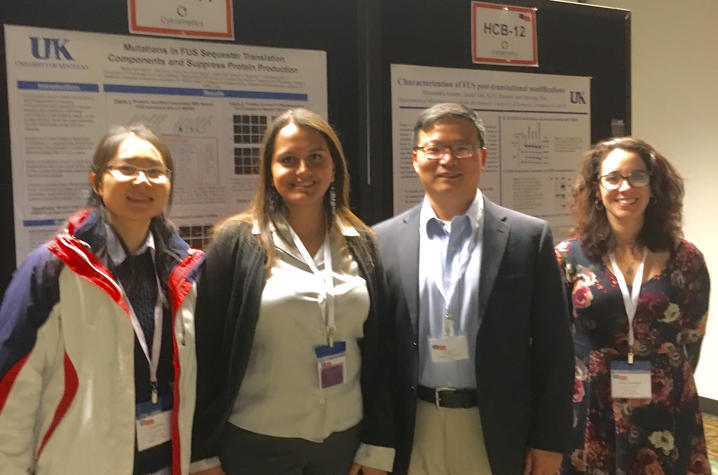
Researchers at the University of Kentucky have discovered new biological processes by which mutations in the FUS gene cause neurodegeneration in amyotrophic lateral sclerosis (ALS).
FUS is a DNA and RNA binding protein that resides predominantly in the nucleus and appears to play a role in DNA repair and RNA metabolism. In contrast, ALS-related mutations cause the protein to accumulate in the cytoplasm, which can contribute to inclusion bodies – the pathological hallmarks of disease – and neurotoxicity.

By Hilary Brown
Link to original UKnow article.
For plastic surgery resident Dr. Ashley Boustany, spending a week in a hospital in Ecuador working with surgeons and dentist on cleft lips and palates was the best week of her entire residency.
"And after five years of residency," said Boustany with a laugh, "that's really saying something."
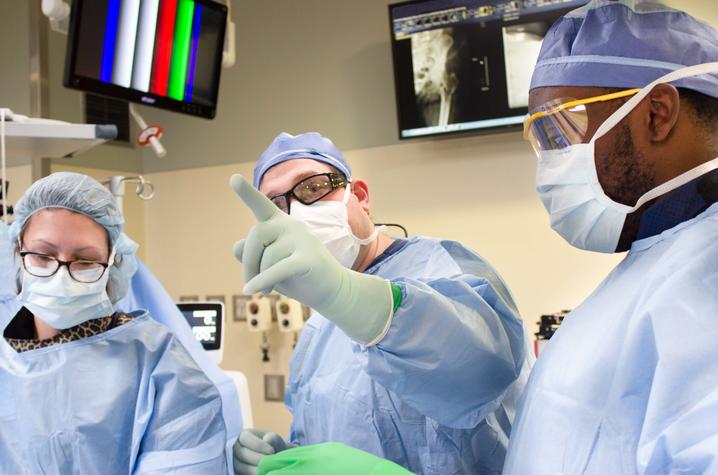
The Orthopaedic Trauma Service research team in UK HealthCare’s Department of Orthopaedic Surgery and Sports Medicine is comprised of a team that has made a tremendous impact despite being formed less than two years ago. The team, which includes Drs.
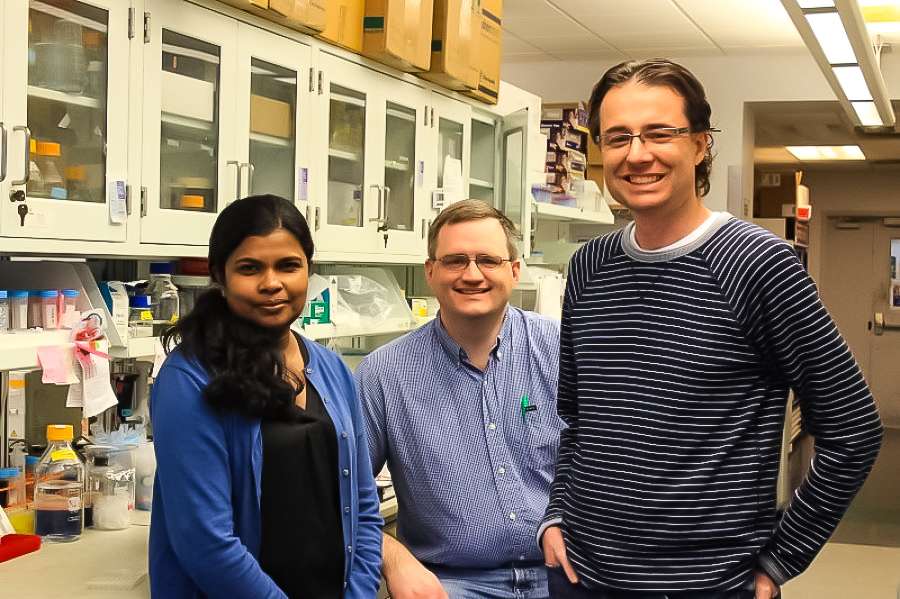
The National Institute of Neurological Disorders and Stroke (NINDS), part of the National Institutes of Health, announced that University of Kentucky's Matthew Gentry has received the Landis Award for Outstanding Mentorship.
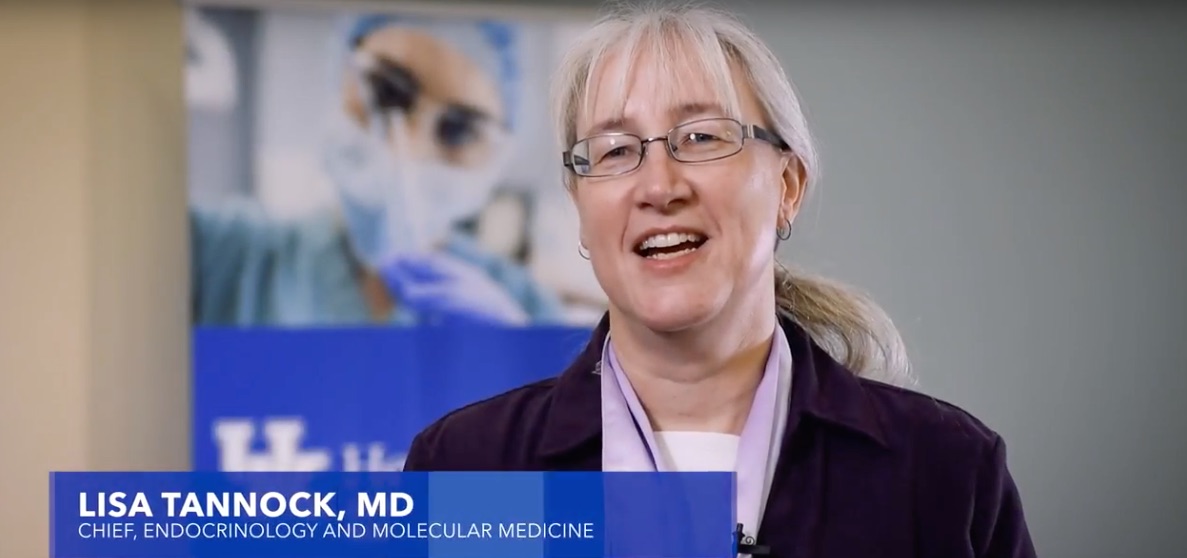
Dr. Tannock joined UK in 2004 and is now the chief of endocrinology in the Department of Internal Medicine as well as the associate director of the Barnstable Brown Diabetes Center. Endocrinologists study and treat hormone-related diseases, such as diabetes and thyroid disease. Some of Dr. Tannock's clinical interests include diabetes and insulin resistance, cholesterol disorders and transgender medicine. Barnstable Brown is one of the few centers in Kentucky to offer hormonal management therapies to transgender individuals.
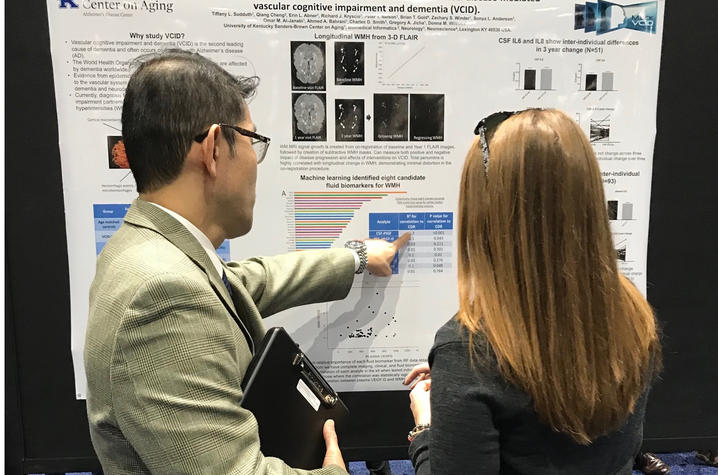
Research at the University of Kentucky Sanders-Brown Center on Aging has identified two potential ways to predict vascular cognitive impairment and dementia (VCID) – the second leading cause of dementia behind Alzheimer's disease.

It's been over three years since UK HealthCare's Kentucky Children's Hospital and Cincinnati Children's Hospital Medical Center entered into an ambitious partnership to provide pediatric heart surgery services to the families of Kentucky.
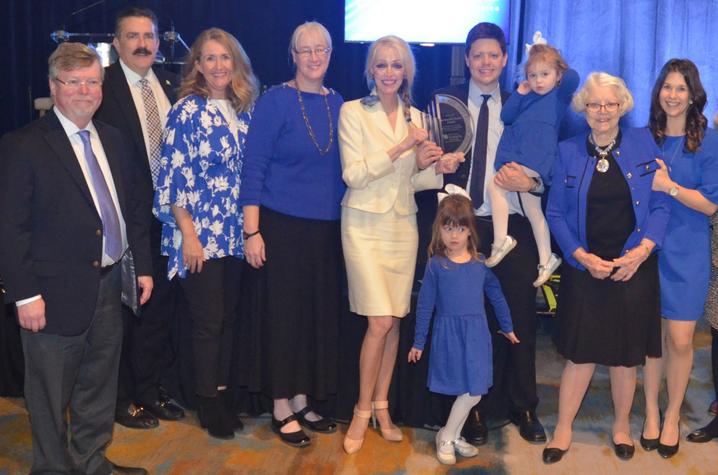
The Barnstable Brown family is well-known for a long list of accomplishments and accolades, as well as a long-standing connection to the University of Kentucky. Twins Patricia and Priscilla are former University of Kentucky cheerleaders, and their father, Dale, had an outstanding college basketball career, playing an integral role in UK basketball’s first two championship wins.
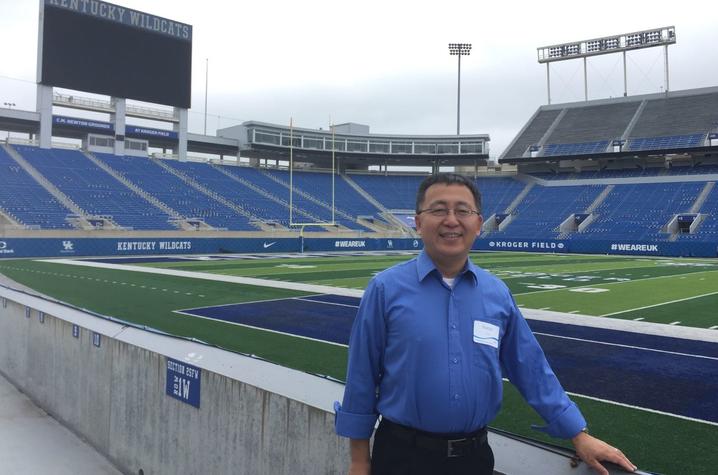
Renowned biochemist Xiaoqi Liu, Ph.D., has been named chair of the University of Kentucky Department of Toxicology and Cancer Biology.
Liu’s research involves the molecular mechanisms that cause cancer with the goal of using this information to create new avenues for cancer therapy. His work specifically focuses on an enzyme known as Polo-like kinase 1, which plays a central role in controlling cell division and exists at abnormally high levels in many types of cancers, including prostate, pancreatic, melanoma and lung cancers.
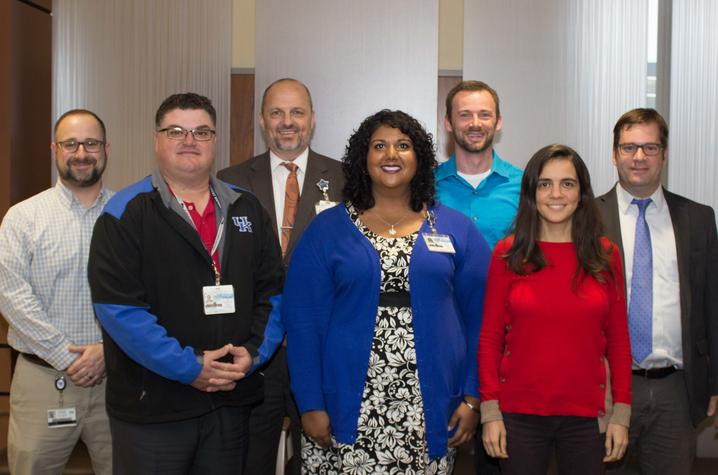
Diabetes is a complex condition that requires patients to check in with providers across a number of specialties. Multiple appointments with practitioners can mean endless rounds of scheduling, traveling and follow-ups. Many patients don't have the flexibility to take off work, the means to travel, or access to education materials to help them manage their condition. But thanks to a new grant secured by UK HealthCare's CE Central and their partners at DKBmed, vital screenings for diabetic retinopathy will be conducted by the patient's primary care provider.
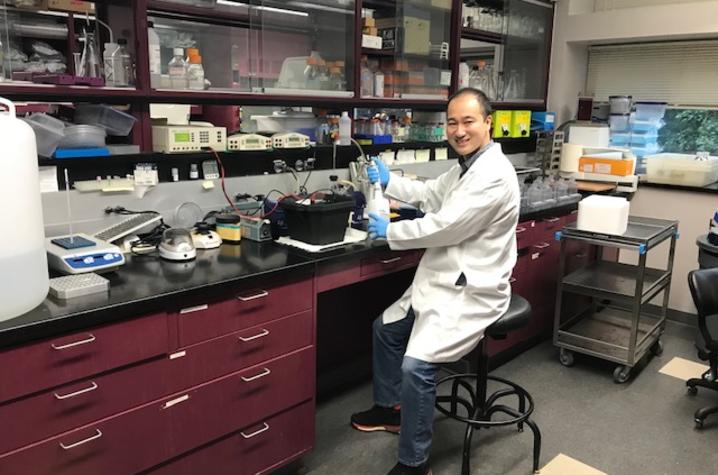
Fetal alcohol spectrum disorders are an array of conditions that can occur in a person whose mother consumed alcohol during pregnancy. Fetal alcohol syndrome (FAS), the most severe of these conditions, often results in physical abnormalities, behavioral development issues and intellectual disabilities.

The NIH Center of Biomedical Research Excellence (COBRE) on Obesity and Cardiovascular Diseases, in collaboration with the Center for Clinical and Translational Sciences (CCTS) announce the availability of limited funds to support pilot projects focused on research examining obesity-associated diseases.
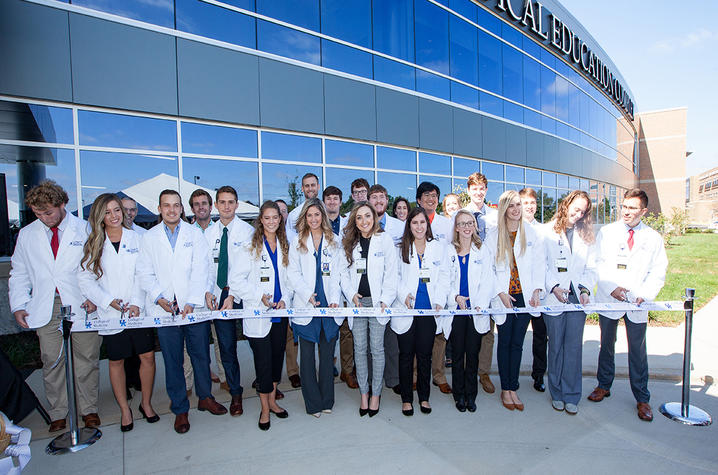
A ribbon cutting ceremony on Thursday marked the official opening of the University of Kentucky College of Medicine-Bowling Green Campus. The celebration of the new home for faculty, staff and the inaugural class of 30 students was also an opportunity to thank the medical school's partners ̶ Med Center Health and Western Kentucky University and the community of Bowling Green.
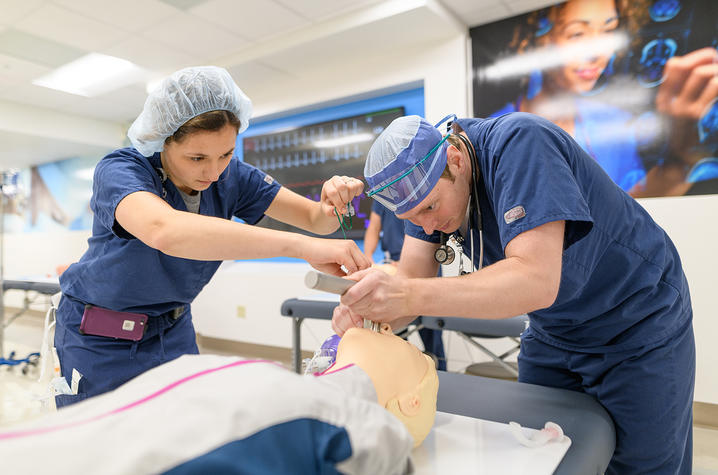
UK HealthCare has opened the doors to a new, state-of-the-art simulation facility. The approximately 7,000 square feet space, located on the second floor of University of Kentucky Chandler Hospital, will house technology needed for multidisciplinary training and research to advance patient safety and educate today's students and tomorrow's health care providers.
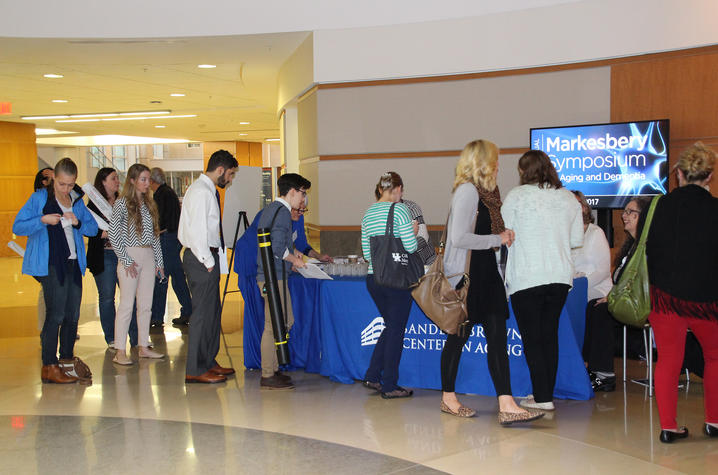
Alzheimer's disease wreaks emotional havoc on patients, who are robbed of their memories, their dignity and their lives. It’s financially devastating as well: care for Alzheimer's patients is predicted to top $1 trillion by about the time children born today are having children of their own.
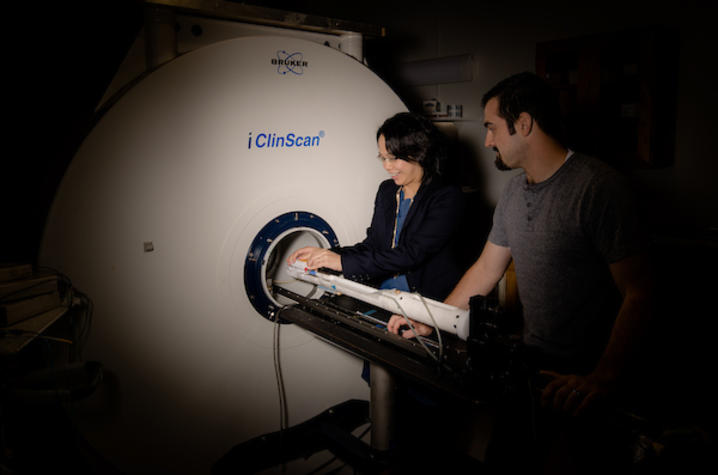
We've all experienced a "gut feeling" — when we know deep down inside that something is true. That phenomenon and others, aptly describe what scientists have now demonstrated: that the gut and the brain are more closely connected than we once thought, and in fact the health of one can affect the other.
Capitalizing on this relatively new scientific concept, Ai-Ling Lin, and her colleagues at the University of Kentucky Sanders-Brown Center on Aging, have published two studies that demonstrate the effect of diet on cognitive health in animals.
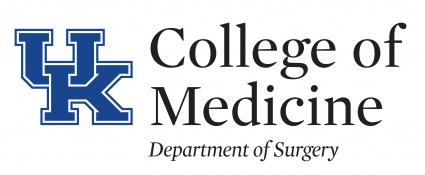
The University of Kentucky College of Medicine invites applications for the position of chair of the Department of Surgery. The College of Medicine seeks a visionary chair with demonstrated leadership abilities, a strong record in academic medicine, with administrative experience as a division chief or program/center director who could provide strong leadership skills as a listener, decision-maker, humanist and effective advocate for the Department of Surgery and its faculty.
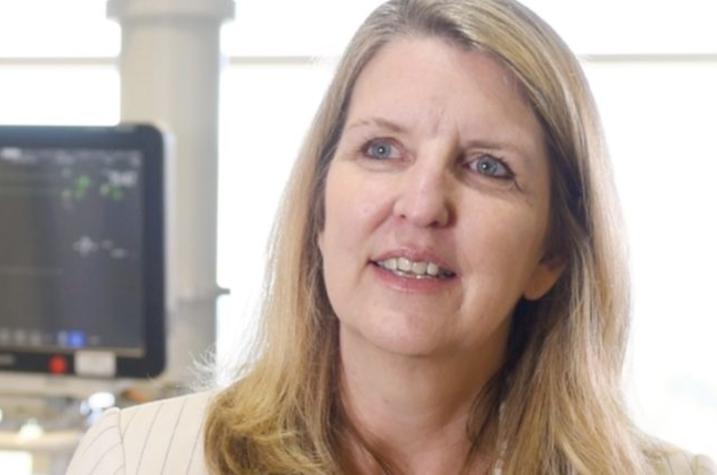
The University of Kentucky Alumni Association — with a committee chaired by UK Associate Provost for Faculty Advancement G.T. Lineberry — regularly honors outstanding UK faculty members with the UK Alumni Professorship Award.
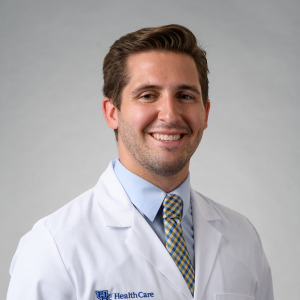

 ,
, 